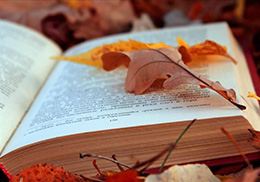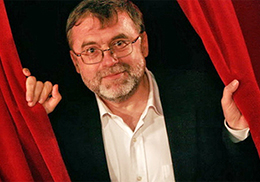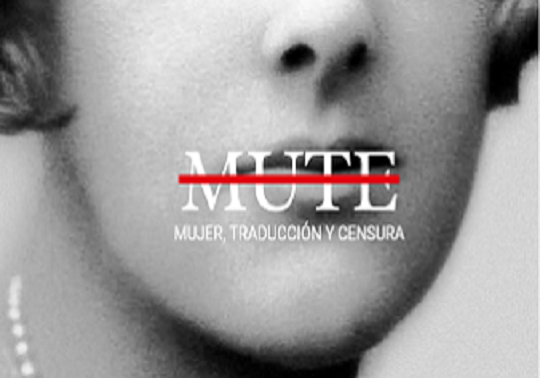
19 september 2017
1. Patria (Fernando Aramburu, 2016). A novel that aims to be the definitive work on the Basque conflict and that has raised hackles among the abertzale sectors as well as passion among the rest of readers. The author tells how the ETA terrorism destroys the relationship between, and inside, of two families through several characters and literary figures such as flashbacks and prolepsis. All this narrated with a greater sensitivity and by reducing the daily horror of the terrorist movement. Recommended by Ignacio Ramos.
2. The Human Stain (Philip Roth, 2000). Framed within an academic context, the novel deals with the moral aspect of ‘the political correctness’ through the American racial and religious problems embodied in a university professor who has been accused of racism. It is the best example of what the postcolonial studies have called ‘racial passing’ (a person classified as a member of one racial group is also accepted as a member of a different racial group). Recommended by Ignacio Ramos.
3. The Brief and Wondrous Life of Oscar Wao (Junot Diaz, 2007).
A novel that is a constant game with English.
The author, who is from the Dominican Republic, is professor of creative writing at the prestigious MIT is Massachusetts. This fact represents the best illustration of the work’s stylistic richness. It is written in English and Spanglish and shows the American cultural and linguistic hybridization. It is a portrait of the Dominican Republic under the Trujillo era. Recommended by Ignacio Ramos.
4. Robe de marié (Pierre Lemaitre, 2008). Probably one of the most distinguished representatives of the French thriller. This is not an easy matter due to the great number of thriller writers from this country. It is difficult to speak about the novel without revealing the mystery. We will only affirm that, after reading it in French, the translation of the title into Spanish is entirely appropriate and transfers the ambiguity of the original novel. Recommended by Ignacio Ramos.
5. Historias de Nuevas York (Enric González, 2006). It is a mix between the autobiography, the tour guide and the travel journals in which Eric González goes deep into the private life of a city that summarises the western modernity. The journalistic style of González, which has already been done by other authors (Brendan Behan, Charles Dickens, Henry James, Mark Twain, etc.) is a referent to the ones that have come later (Javier Reverte, Elvira Lindo). It is essential to everyone who is thinking in spend a long period in this city. Recommended by Ignacio Ramos.
6. Naranjas de sangre (Verena Boos, 2015) the action of the book takes place between Germany (Munich) and Valencia, in present and past (the civil war and the World War II). Maite, a Spanish young girl, considers that studying in Munich is an opportunity to escape from her conservative family. She thinks that Valencia, her hometown, a city that exports great quality oranges, is increasingly strange and distant for her. Maite falls in love with Carlos, a young body of a German-Spanish family. She becomes friend of his grandfather, an old immigrant that tells her events and remains silent about other situations. On day, she answers him a question that provokes a drama: how was it possible that his father wore a German uniform? Recommended by Brigitte Jirku.
7. A manual for Cleaning Women (Lucia Berlin, 2016) Lucia Berlin (1936-2004) talks about and from the margin that she knows well. Her descriptions are surprising, and the reader become addicted due to their terseness and creativity. The book is ‘an exhaustive selection of her best stories, presented for the very first time in Spanish’. The stories are accompanied by a prologue (Lydia Davis), an introduction (Stephen Emerson) and a (final) note about Lucía Berlin signed by S.E. Recommended by Ana R. Calero
8. You are not like other mothers (Angelika Schrobsdorff, 2016). In March 2016 two publishers (Periferia and Errata Naturae) joined to publish the Spanish translation of the book: Tú no eres como otras madres. The story of a passionate woman. The valuation of several reviews from newspapers’ cultural supplements, radio programmes, etc. has been very positive. As an example, Andrés Trapiello (2016), mentions: ‘This book is fascinating, overwhelming, unique’. Recommended by Ana R. Calero.
9. The story of Genji and The story of Genji II (Murasaki Shikibu; 2005 y 2006). The first novel written by a woman in the 11th in Japan. ‘Likewise the hand slides over the silk, Murasaki’s writing designs the story down to the last detail. The reader enters in this atmosphere feeling the traditions of the medieval Japan, which may seem so distant, as his owns. The reader of this book see the succession of adventures of Genji, nicknamed Hikaru (the resplendent), as if in front of his eyes the scroll - a support in which it was originally presented - was extended, where the calligraphy and the illustration form a unit, being the writing the psychological ups and downs of the characters and the image the material frame: costumes, furniture and everything of the palace or landscape scenography. This ability of Murasaki to strike the eye and also the intellect is summarised in his integration in the fine arts world and in its incessant characters’ clarification’. Fragment of Clara Janés‘ review. Recommended by Antònia Cabanilles.
10. Things fall apart (Chinua Achebe, 1958). The Nigerian Chinua Achbe is considered one of the most representative and relevant writers of the 20th century and beginning of the 21st (the fact that he writes in English, due to a conscious but also controversial decision, helps doubtlessly to his recognition). Through works like Things fall apart, Civil Peace and Arrow of God-known as ‘African trilogy’- Achebe has portrayed the process of destruction of the traditional ways of life and power at the hands of colonialism. Passage of Santi‘s review. Recommended by Antònia Cabanilles.
Bonus track: The sorrow of angels (Jón Kalman Sefánsson, 2009). ‘It is possible that it is just the complexity or the range of nuances (even when they do not surface or sway in an ellipsis) what makes literature a story. In Stefánsson’s prose arise what Steiner named as fertile echo, the inevitable evocation. The sorrow of angels seems a diptych. The first part relates the inside of an Icelandic home in which an epic of everyday life rises above the domestic life, the serene and intimate ‘costumbrism’ of a cup of hot coffee or a grumpy old man. Selma Lagerlöf’s mark seems evident in these pages where the psychological intensity rewards the human relationships which takes up an earthly existence mixing it with a dream’. Fragment of Javier Aparicio‘s review. Recommended by Antònia Cabanilles.



















